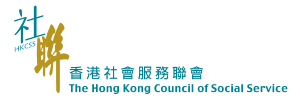Seminar on Compliance of the Personal Data (Privacy) Ordinance for NGOs
NGOs handle large volume of personal data in everyday operations, from personal particulars of service users, volunteers, donors, to photos taken at events and videos of surveillance cameras in service units, etc. Without careful handling of the data, agencies may face the risk of breaching the Personal Data (Privacy) Ordinance (Cap. 486) (the Ordinance), which will not only infringe the privacy of stakeholders, but also harm the reputation of the organization. The risk is even higher nowadays as a lot of personal data is collected online and stored in digital format with serious security concern. With the coronavirus outbreak and public health recommendations of physical distancing, working from home and the use of digital communications tools have become a new normal. Under such circumstance, has your organisation put in place personal data protection guidelines and protocols to guard against the risks of possible breach of the Ordinance? To facilitate better understanding of personal data protection, the Council has collaborated with PricewaterhouseCoopers (PwC) as the knowledge partner in developing the Personal Data Privacy Toolkit for NGOs. The upcoming webinars will be conducted in Cantonese and English respectively, where Data Privacy Team of PwC will present the toolkit and share their experience in supporting organizations to ...
[Webinar] NGOs’ Governance Practices Amidst COVID-19
With the outbreak of the COVID-19 pandemic, normal lives are seriously interrupted globally, and the non-profit sector is no exception. Minimizing social contacts is one of the measures to prevent the spreading of the coronavirus. Without face-to-face meetings, many NGOs' routine governance functions are disrupted. Do your organization's existing governance documents provide clear guidance on the proper way to handle this circumstance? Is your board allowed to have virtual meetings to keep functioning? Are you worried about meeting the quorum requirement for your forthcoming AGM? To facilitate NGOs response to such challenges, the Council and PILnet are going to organize a webinar in early April. Details as follows: Date: 9 April 2020 (Thursday) Time: 3:00pm - 4:00pm Speakers: Ms Jacqueline Chiu, Partner, Mayer Brown Ms Jevon Tsang, Associate, Mayer Brown Language: Cantonese (materials in English) Target participants: NGO Board / committee members (top priority), Agency Heads, Company Secretaries, Senior Management of HKCSS Agency Members Interested parties please register online, on a first-come, first-served basis, on or before 8 April 2020 (Wednesday). We encourage you to submit your questions upon registration, so that the speakers can prepare in advance and address the common concerns raised. For enquiries, please contact the Project team at ...
ICAC’s Best Practice Checklist
A series of Best Practice Checklist published by the Independent Commission Against Corruption have been uploaded to the Project website for reference of interested parties. Integrity and Corruption Prevention Guide on Managing Relationship with Public Servants Quick Starter to Integrity and Corruption Prevention Guide on Managing Relationship with Public Servants Management of Donations for Naming Rights Staff Administration ...
編寫香港非政府機構管治手冊指南
An NGO should own a set of governing documents, including a governance manual, to file its governance processes and practices. In times of transition of board members or senior management, these documents keep the basis of the NGO’s governance stable and provide a quick overview on its governance to newly joined board members or staff. To provide support to NGOs in this area, PILnet facilitated the collaboration between HKCSS and Mayer Brown to develop the “Guidelines on how to develop a corporate governance manual for Hong Kong NGOs”. This document introduced the suggested framework of an NGO’s governance manual and the requirements and standards in compiling each section. NGOs can make reference to this guide when developing their own governance manual. Click to View ...
Agency Governors’ Forum on Review of Lump Sum Grant Subvention System (LSGSS) 2020
[Event Postponement] Agency Governors' Forum on Review of Lump Sum Grant Subvention System (LSGSS) 2020 As a preventive measure against the coronavirus outbreak, 3 sessions of Agency Governors’ Forum on Review of LSGSS originally scheduled for 12, 20 and 21 February 2020 have been postponed to June 2020. Details will be annouced later on. Please accept our apology for any inconvenience caused. For enquiries, please contact the NGO Governance Platform Project team at 2922 9255. The Social Welfare Department set up the “Task Force for Review on Enhancement of LSGSS” in November 2017 and decided to review LSGSS according to the following scope of 8 items: (a) Operating environment of NGOs under the LSGSS (b) Review of staffing establishment and subvention benchmarks (c) Use of LSG/PF reserve and financial planning (d) Pay structures, staff turnover rate and vacancies (e) FSA-related activities and flexibility provided for NGOs (f) Mechanisms for reviewing FSAs and NGOs’ service performance assessment (g) Transparency and public accountability (h) Communication and participation of stakeholders After two years’ review, it is expected that the Task Force should have discussed 6-8 items by the end of 2019. In this connection, the Council is going to organize three forums for the Boards and ...
